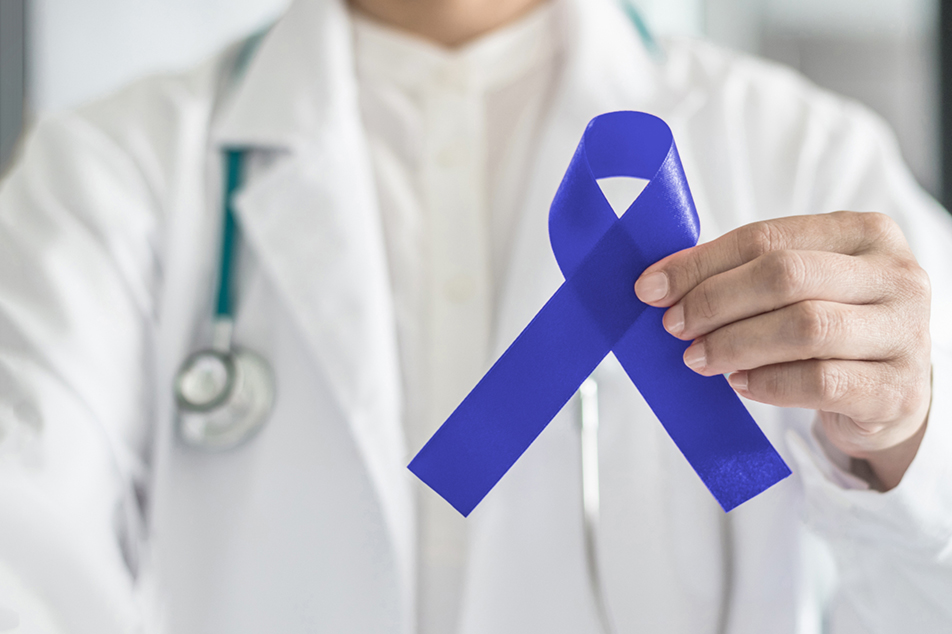
This post was written based on a recent appearance by Sunil Reddy, MD, PPG – Colon & Rectal Surgery, on the television program PBS HealthLine.
Colorectal cancer is the third most common cancer worldwide, and the American Cancer Society estimates 106,970 new cases of colon cancer and 46,050 new cases of rectal cancer in the United States for 2023. But knowing your risk and the colorectal screening options available can help prevent and detect this highly treatable disease. To raise further awareness on the subject, a colorectal surgeon answers a range of questions regarding these cancers and why screening is so important.
How prevalent is colorectal cancer?
In men, colorectal cancers are the third most deadly cancer after prostate and lung cancer and are the third most common cancer in women after breast and lung cancers.
What are the risk factors for colorectal cancer?
Age has traditionally been considered the most significant risk factor, with most colorectal cancers diagnosed after age 65. Almost 80% of colorectal cancers diagnosed are in patients 60 to 65. Beyond that, genetic risk factors such as a family history of colorectal cancer, especially in first-degree relatives like parents, siblings and children, play a major role and place someone at an increased risk.
Other factors that could affect someone’s risk for the disease also include:
- Diet
- Lifestyle
- Environment
- Gut micro-organisms
What is young-onset colorectal cancer?
Recently, we have seen people younger than 50 (in their 30s and 40s) diagnosed with colon and rectal cancers. There’s a lot of research to investigate why this is occurring. Still, researchers estimate that by 2030 at least 1 in 10 colon cancer diagnoses and 1 in 4 rectal cancer diagnoses will be young-onset.
Sadly, this is a concerning trend worldwide in North America, Europe, Australia and Southeast Asia. Many hypothesize that it is because of the birth cohort of the younger generation. They all face similar changes in lifestyle, diet, exercise and work, with many of these facets promoting sedentary routines, all of which contribute to an increased risk and incidence of colorectal cancers occurring at younger and younger ages.
What are the symptoms of colorectal cancer?
Interestingly, colorectal cancer remains silent until it’s in the advanced stages and often goes undiagnosed due to a lack of symptoms. However, when someone does experience symptoms, it can manifest as:
- Changes in bowel habits (subtle or abrupt)
- Rectal bleeding
- Blood in the stool
- Constipation
- Abdominal pain
For example, someone with regular bowel movements every day might eventually only go to the bathroom every three days. It’s a subtle change, but it could indicate something’s wrong. By the time obvious symptoms appear, it means the cancer has grown to the extent that it’s affecting the mechanisms of the bowels.
How is colorectal cancer treated?
The first step in the process is diagnosis. When we do a colonoscopy, we will take some biopsies of the mass, then send it to the lab to confirm that it is cancer. After that, the next step is to stage it, which means we want to make sure it hasn’t gone anywhere else within the body because that’s what cancers do, they spread. To determine if that has happened, we will do CT scans of the abdomen and chest to ensure it hasn’t moved to the liver or lungs. Once we ascertain that it hasn’t gone anywhere else, we look to see if surgery can cure it. Certain cancers, like rectal cancers, may need some chemotherapy or radiation upfront to shrink the tumor, then we will do surgery.
When should someone think about getting screened for colorectal cancer?
If you have a parent or sibling who has been diagnosed, then you are at an increased risk for developing colorectal cancer, in which case screening should start 10 years before the age your parent or sibling was diagnosed or by the age of 40, whichever is younger. If you don’t have a parent or sibling diagnosed with colorectal cancer, screening should start at age 45. Also, once someone starts getting polyps, they need to do a colonoscopy at least every five years, and with some rare genetic conditions, this may need to happen every two years.
Why are many people apprehensive about getting a colonoscopy?
The main concern most people have is regarding the preparation for the colonoscopy. To get clear pictures of the colon and find the polyps, we need to make sure it is completely free of stool. To achieve that, we give patients a bowel prep, a hefty dose of laxatives that helps induce bowel movements and clear the colon of all the stool. However, things have changed a bit when preparing for the procedure. In the past, bowel preps used to be particularly nasty, but now there’s less volume, it’s more palatable and more easily tolerated by patients. The colonoscopy procedure only takes about half an hour, and most are done with sedation, so patients don’t feel a thing. This allows the doctor to check the colon thoroughly and remove any polyps. When complete, patients can go home, and resume work the next day.
Is colorectal cancer preventable?
Yes, colorectal cancer is preventable. Colorectal screenings can help prevent and detect cancer early, so we can find and treat it appropriately before it gets too advanced. Research has shown that colon cancer develops from polyps, which are small bumps in the colon. Initially, they are benign, but slowly, they can develop into cancers over time. Also, since it’s a slow-growing process, it allows us to intervene and get the polyps out, thereby preventing the cancer from developing.
Final thoughts
I want people to understand that colorectal cancer is very preventable and treatable compared to other cancers. Fortunately, with colorectal cancer, we still have opportunities to intervene and make a real difference in people’s lives.